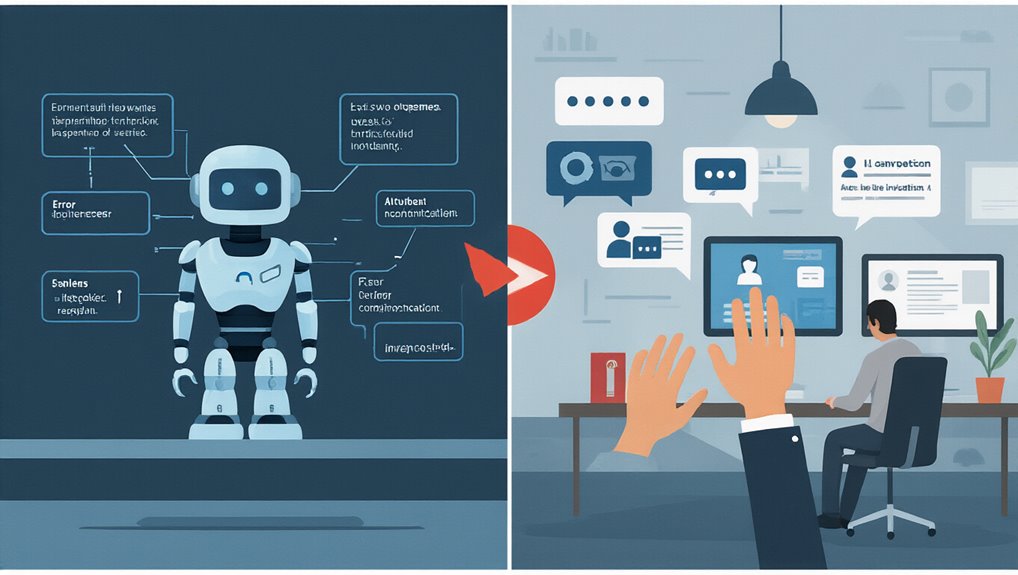While businesses race to implement AI technologies across customer service channels, an overreliance on chatbots alone threatens to undermine the very experience they aim to enhance. Research shows that AI chatbots struggle considerably with complex or nuanced customer issues, with 41% of customers reporting that chatbots cannot adequately address personalized questions. This limitation often necessitates human intervention, as only 80% of routine tasks can be effectively managed by current AI systems. AI chatbots generally operate on patterns rather than true understanding, making them ill-equipped for unconventional requests.
Despite AI advancements, overreliance on chatbots risks undermining customer experience when human insight matters most.
The emotional intelligence gap presents another critical challenge. With 46% of consumers preferring live support despite potentially longer wait times, the data clearly indicates a human preference when emotional intelligence is needed. AI chatbots fundamentally lack empathy and cannot genuinely understand human emotions, making them unsuitable for sensitive situations where emotional intelligence is paramount. Only half of customers believe AI agents can demonstrate empathy when addressing their concerns.
Data quality directly impacts chatbot performance. Organizations face ongoing challenges with 45% citing lack of training data as a major deployment hurdle. Outdated or biased data leads to inaccurate responses, while only 48% of enterprises actively monitor chatbot analytics to ensure consistent performance. This neglect can result in degrading service quality over time. Human agents are essential for maintaining AI systems by monitoring performance and safety of automated customer interactions.
Technical integration poses additional obstacles, with 39% of organizations struggling to integrate chatbots with existing systems. These implementation challenges create fragmented customer experiences and data silos that undermine service continuity. Furthermore, chatbots can behave unpredictably, with 32% of customers reporting frustration when encountering the limitations of automated systems. Unlike chatbots, Managed IT Service Providers deliver comprehensive technical support with predictable monthly costs that facilitate accurate budgeting for customer service operations.
The most successful customer service strategies employ a balanced approach. Companies should:
- Reserve chatbots for handling routine inquiries
- Create clear escalation paths to human agents for complex issues
- Regularly update training data to improve accuracy
- Implement continuous monitoring systems









